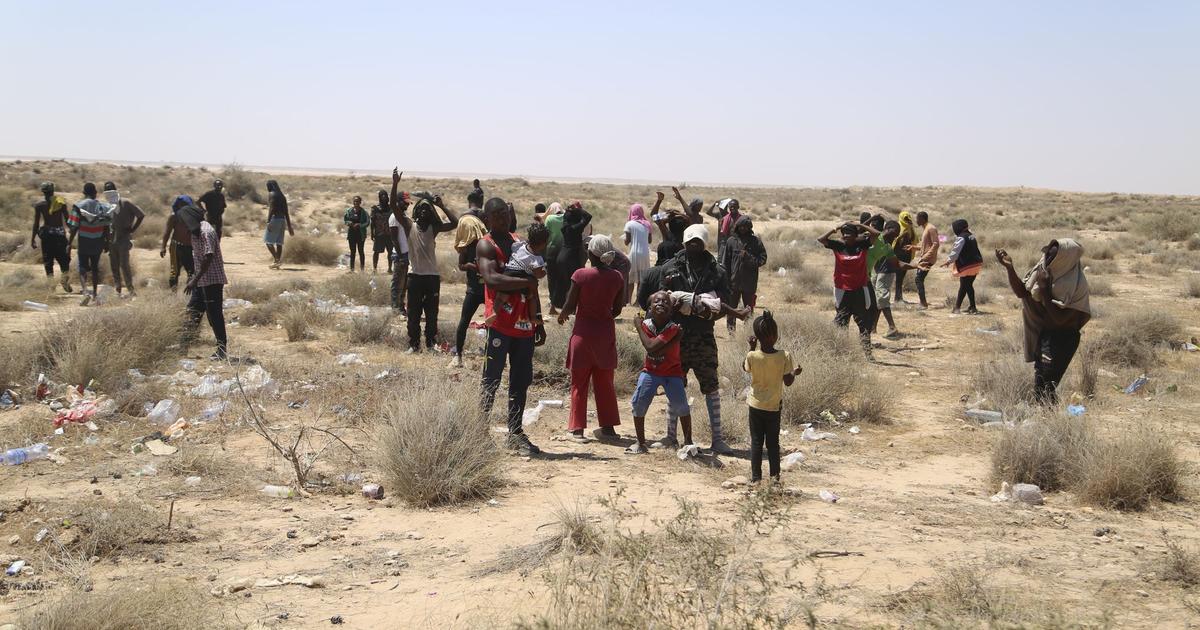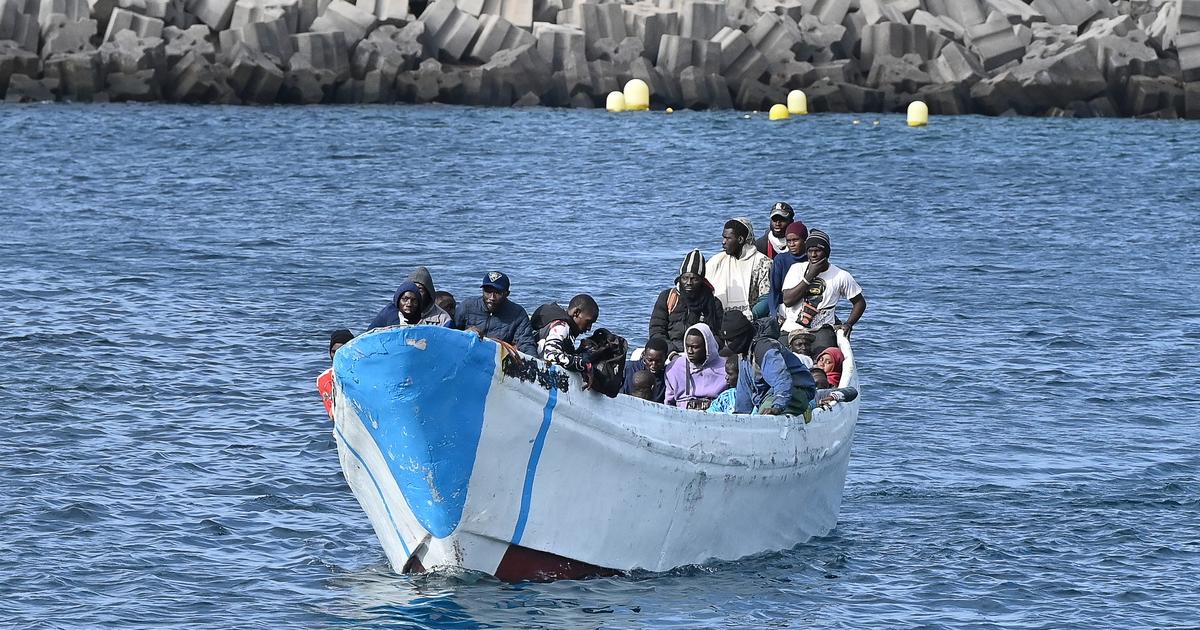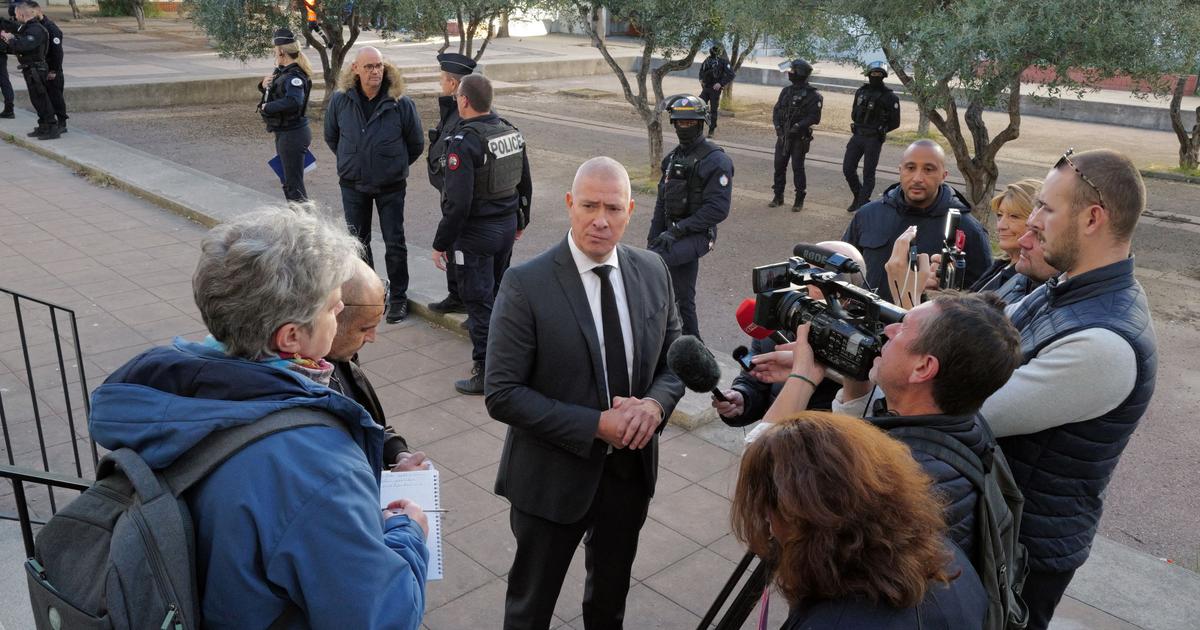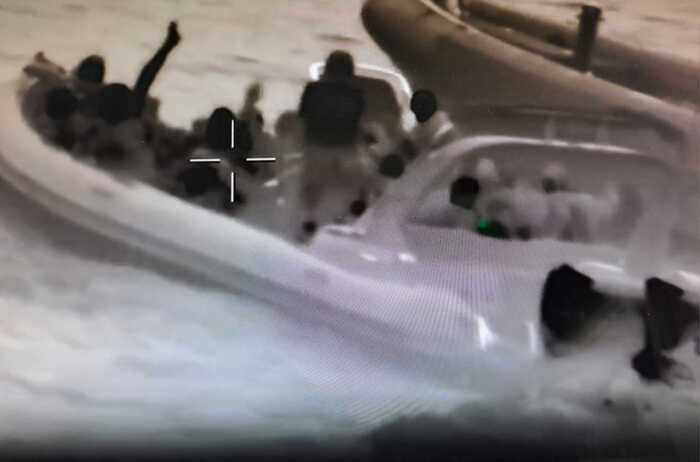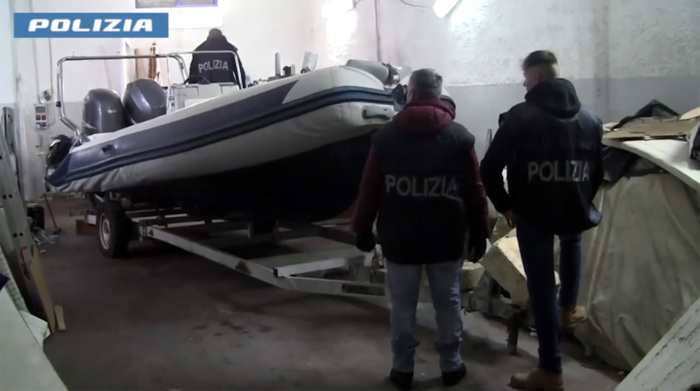They try to walk like shadows, as if they thought they were invisible, through the arcades of a street market in Sfax, the commercial capital of Tunisia. Guineans Ibrahim Galisa, 33, and his cousins Mamadu, 25, and Mayette, 23, have already tried to flee by boat from that port city turned into an open-air prison for more than 10,000 sub-Saharans, trapped on their way of clandestine immigration to Europe. Mayette was a pastry chef in Guinea Conakry. "I am not afraid to embark again for Lampedusa, here we are already dead in life," he resigns himself after six months adrift in Sfax, 270 kilometers south of Tunisia. Ibrahim, leader of the family group, has already gone to sea twice in a year and a half. "For less than 2,000 euros you can't find someone to take you, even if it's me who makes the boat with metal plates," warns this mechanic-welder. Mamadu, an electrician, nods next to him as he watches a passing police vehicle in the distance. He has been in the Arab country for almost a year. "We have to leave anyway, in Guinea there is no future and in Tunisia either," he says among hundreds of black Africans who wander trying to go unnoticed in a society that openly rejects them.
There are 21,000 sub-Saharans officially registered in the Maghreb country. Up to 40,000, according to NGOs such as the Tunisian Forum for Economic and Social Rights (FTDES). Its director, Alaa Talbi, summed it up this way in the organization's office on the central Bourguiba Avenue in the capital: "Thousands of human beings are desperately struggling to flee the hell of Tunisia, where they can only return to their country of origin or risk dying at sea." Or in Sfax itself. Last Tuesday, while the three Guinean cousins referred to their tribulations of uprooting, the death in the hospital of an immigrant from Benin, a man in his thirties who had been stabbed the previous week by seven Tunisians, was known.
"The discourse of incitement to hatred of migrants is amplified in social networks," the Tunisian associations involved in the aid to sub-Saharans have immediately warned. "There is a before and after February 21 of this year, when the president of Tunisia, Kais Said, gave his xenophobic speech," said Himma Hamad, head of immigration in the Sfax branch of the Tunisian League for Human Rights. Said, who rules by decree after dissolving parliament two years ago, called the presence of tens of thousands of black Africans among 11 million people a "demographic threat to Tunisia's Arab identity."
The smallest country in the Maghreb is now the main escape valve for the African migratory drive. The 100 kilometres of coastline between Sfax and Mahdia (to the north), where almost 75% of boat departures are concentrated, have become a coast of death for clandestine immigration to Europe. Between the months of January and April of this year, 498 people have died or disappeared in boat wrecks in Tunisian waters, 56% of the total in the Mediterranean, despite the notable increase in naval surveillance, according to FTDES data. Most of the fatalities have occurred during the month of April, with 371 dead or missing, after the "escape order" issued, according to Talbi, by the Tunisian president took effect.
"We just label the corpses in the morgue with a number. At first, between April and May, we were overwhelmed," admits Hakim Annas, wearing his vest as director of the Tunisian Red Crescent in Sfax, assisted by only two volunteers. It uses a mobile app coordinated with the International Committee of the Red Cross to locate relatives of shipwreck victims. "If they are not identified? That is what a crisis committee of the Administration deals with," Annas replies. "The municipality has just expanded the cemeteries," he clarifies, "now there are enough graves. It takes a lot more than last year."
The pressure of Tunisian migrants (a fifth of the total) and especially that of sub-Saharan Africans translates into about 19,000 interceptions in the first four months of 2023 – which already represents 82% of all those of 2022 – en route to Italy, where 2,935 irregular migrants have arrived in the same period from Tunisia. "And the worst is yet to come this summer, when departures multiply," warns Talbi. "The Tunisians escape in traditional wooden boats, safer, but the sub-Saharans only have inflatable boats or unstable metal canoes that they make themselves on the beach," says the director of the NGO.
Guardian of immigration in the Mediterranean
"In exchange for acting as a guardian of immigration in the Mediterranean, with measures based only on security, Said receives economic and political support from France and, especially, from Italy," he argues. "This support has accelerated since the July 2021 self-coup and with the country's severe economic crisis fearing that instability will trigger a dramatic flood of boats from Tunisia. But migratory pressure cannot be completely contained," he concludes.
Located half-day sailing with a small outboard motor, the Italian island of Lampedusa is the gateway to Europe, after Libya sealed its shores from 2017. Tunisian Ayman Said, 30, sells only lamb tripe and some minced beef at the butcher shop he subleases on the outskirts of Sfax. Three years ago he tried to find a better future on the other side of the sea, but Italian security forces captured him when he could already see the coast of Lampedusa. His boat sank and he had to be rescued by a rescue ship.
"In just 48 hours we were returned to Tunisia after passing through a detention center in Palermo," he says at the butcher counter. "There were a dozen of us. We all boarded a military plane, except for one minor who remained in Sicily. They caught us because we ran out of drifting fuel. We had to flee as fast as we could after some black people tried to approach us with their zodiac to rob us," he says.
Arrivals of irregular migrants across the central Mediterranean are on track to reach record levels this year, Frontex director Hans Leijtens told Reuters and France Presse. "This has not been seen before," warned the head of the European Border and Coast Guard Agency, "and it does not respond to a specific event." Followed by Guineans, Egyptians and Bangladeshis, Tunisians (one in five intercepted) constitute the largest nationality on this structural exodus route to Europe. "I got married six months ago, as soon as I gather the more than 3,000 dinars they ask (about 1,000 euros) to cross the sea in a minimally safe boat with a sailor I will go with my wife to Europe," announces the butcher Ayman Said. "We are more afraid to stay in a country with no future."
Couples. Families with children. Professionals and university graduates. The profile of the Tunisian who gets on a boat (or takes a flight through Turkey and Serbia, in exchange for paying 10,000 euros to an organized network) to enter the EU is no longer just that of a young urban unemployed or a peasant in misery, note the associations that closely follow the migratory phenomenon in Sfax, like us young people. "We cannot remain indifferent," says lawyer Zakia Ben Jedir, 31, whose youth organization receives financial support from leading Scandinavian NGOs. "Worst of all is the background of racism that has emerged in the city against foreigners, against Libyans and Syrians, but above all against sub-Saharan Africans," he laments.
Entrenched at home at sunset
"At seven o'clock in the afternoon, when night falls, my brother and I barricaded ourselves in the apartment," said Guinean teacher Mohamed Comora, 33. He claims to have the papers in order after having arrived from Conakry on a flight to Tunisia with a stopover in Casablanca (Morocco), but acknowledges that his tourist visa has already expired after three months of stay. "What I have seen in Sfax against the Blacks (he inserts the English term in the French conversation) is terrible. It is an ignored reality. I was robbed by several Tunisians with scissors and then hit on the head," he says at the most hidden table of a café, not daring to ask for a glass of water for fear that they would refuse to serve him.
The Sfax branch of the Tunisian League for Human Rights has compiled more than 60 complaints of attacks on sub-Saharan migrants following the president's speech three months ago. "There have to be many more unreported cases," says Hamad, the association's head of immigration. "Harassment, job loss, expulsion from housing," sub-Saharan Africans are still suffering the consequences of the wave of xenophobia triggered by Said's words, he said. "Sfax is a prison for them: exploited with wages of 30 dinars, two thirds lower than those of a Tunisian, to try to save the 3,000 to 7,000 dinars demanded by the boat masters," Hamad concludes. "And their tragedy never ends: 90% don't make it to Europe."
Ibrahim, Mamadu and Mayette Galisa vanish in the middle of Sfax's chaotic urban traffic. "We want to work. We know that there is a need for manpower in Europe. We have tried to apply for visas, but it is no use, except to lose the little money we have. They never arrive," Ibrahim is indignant before saying goodbye along with his cousins with a slight gesture and a final reflection: "The sea is much more dangerous, but it is the easiest way."
Follow all the international information on Facebook and Twitter, or in our weekly newsletter.
Subscribe to continue reading
Read without limits
Read more
I'm already a subscriber

/cloudfront-eu-central-1.images.arcpublishing.com/prisa/OKQU37WRXFC5FM42T7IRDN6FZA.jpg)
